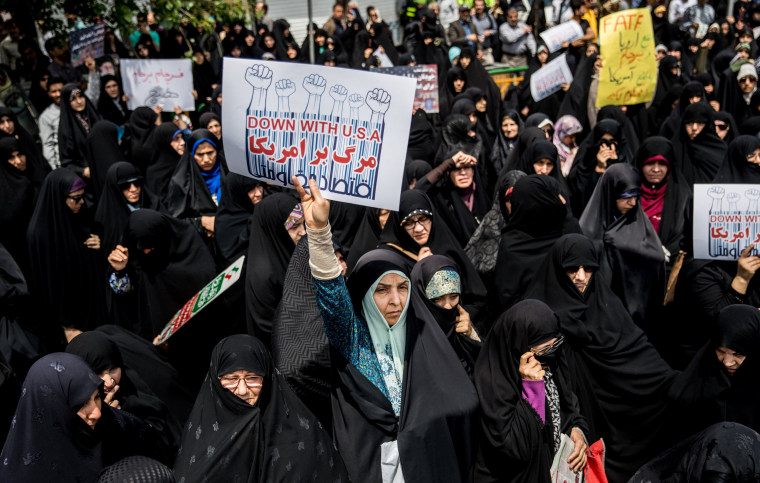WASHINGTON — The United States warned governments and the private sector on Tuesday to crack down on what it described as Iranian efforts to exploit them to fund its support for terrorism, destabilizing actions in the region and rights abuses at home.
The appeal, in a speech by the senior U.S. Treasury official for terrorism and financial intelligence, follows U.S. President Donald Trump's May 8 decision to abandon the 2015 Iran nuclear deal and to reimpose U.S. sanctions on the Islamic Republic.
"You must harden your financial networks, require your companies to do extra due diligence to keep them from being caught in Iran’s deceptive web, and make clear the very significant risks of doing business with companies and persons there," Under Secretary of the Treasury Sigal Mandelker said.
"Companies doing business in Iran face substantial risks, and those risks are even greater as we reimpose nuclear-related sanctions," she added. "We will hold those doing prohibited business in Iran to account."
The U.S. decision to leave the pact, under which Iran agreed to limit its nuclear program in return for relief from economic sanctions, has antagonized its other parties: Britain, China, France, Germany and Russia.
With U.S. sanctions returning between now and Nov. 4, it is not clear how enthusiastic U.S. allies or other nations such as China may be to comply with those sanctions, particularly those requiring foreign firms to reduce their imports of Iranian oil.
The weight of the U.S. financial system and the reality of companies having to choose between selling to Iran or to the vast U.S. market, is likely to force many private firms to comply.
"To those in the private sector, I urge you to also take additional steps to ensure Iran and its proxies are not exploiting your companies to support their nefarious activities," Mandelker said. "You have to do more to make sure your compliance programs are airtight."
"The Iranian regime will deceive your companies, undermine the integrity of your financial systems, put your institutions at risk of our powerful sanctions, all to fund terrorism, human rights abuses and terrorist groups," Mandelker added.
She repeated U.S. threats to increase financial pressure unless Iran ceases actions such as supporting proxy forces hostile to the United States in Syria, Iraq, Lebanon and Yemen.
"Our powerful economic authorities will give the regime a clear choice: Change its unacceptable support for terrorism, destabilizing activities and human rights abuses, or face economic calamity," Mandelker said.

